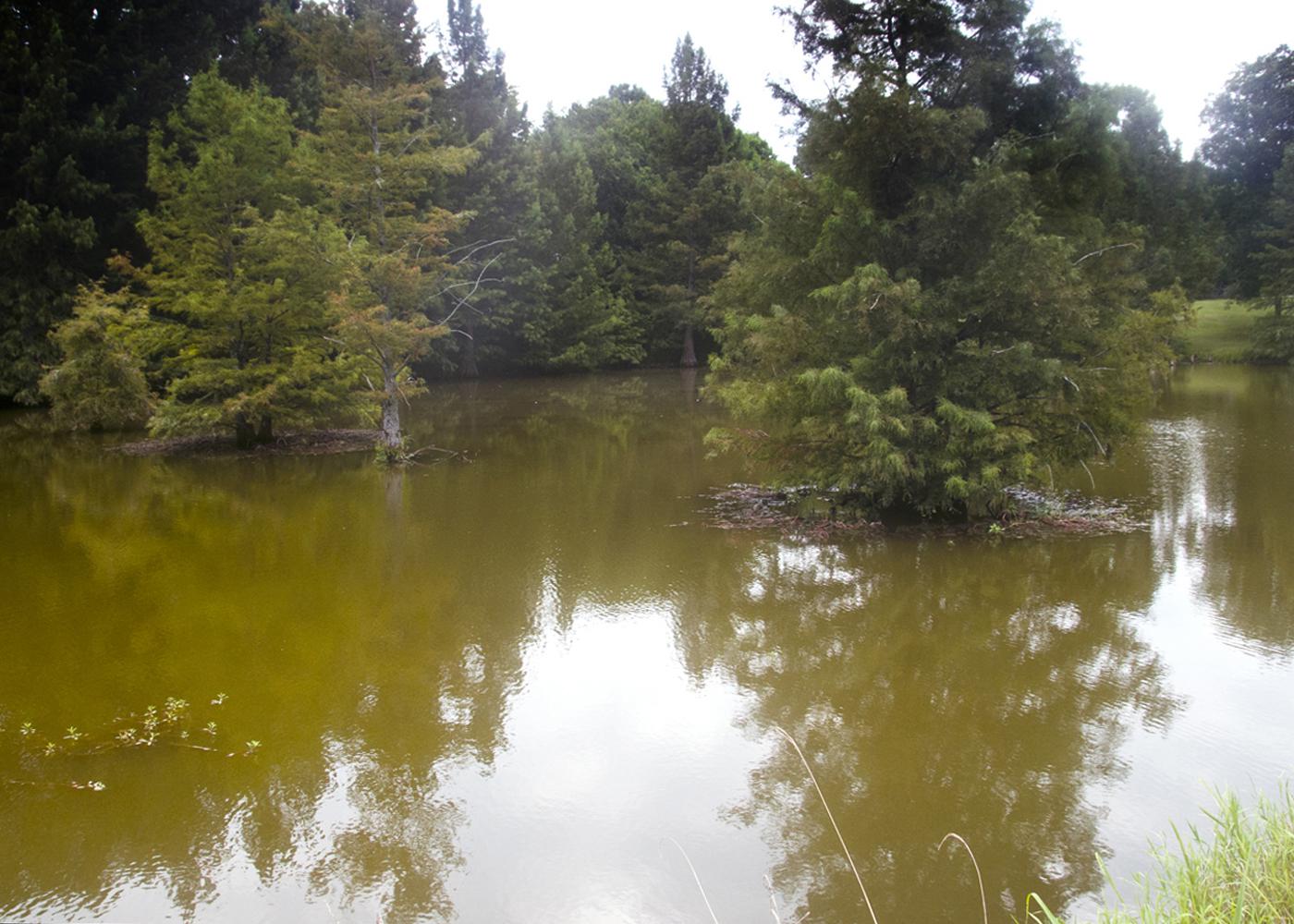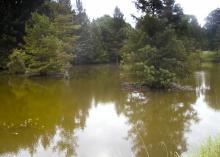Information Possibly Outdated
The information presented on this page was originally released on August 2, 2012. It may not be outdated, but please search our site for more current information. If you plan to quote or reference this information in a publication, please check with the Extension specialist or author before proceeding.
Ponds give Mississippians more than entertainment
By Kaitlyn Byrne
MSU Ag Communications
MISSISSIPPI STATE — Mississippi’s 160,237 ponds offer more than mere recreation — they benefit the state’s economy and environment.
Most people envision ponds as small bodies of water that offer a peaceful view and recreational fishing opportunities, said Glynda Clardy, state wildlife biologist at U.S. Department of Agriculture Natural Resources Conservation Service.
“In reality, ponds can be larger than 3 acres, such as commercial catfish ponds, and frequently have multiple purposes that provide important agricultural, domestic and recreational uses,” Clardy said.
Wes Neal, Mississippi State University Extension Service fisheries specialist and scientist with the Forest and Wildlife Research Center, said that although it is difficult to put a financial value on ponds and pond fishing, their impact is certainly substantial.
In 2006, 84 percent of all angling in the United States occurred on reservoirs, lakes and ponds and anglers spent more than $24 million spent on fishing trips and expenditures, Neal said.
“Some pond values can be easily realized, such as the cost of waterfront property,” Neal said. “Some pond owners also lease fishing access long-term or charge a daily fee for fishing.”
Clardy said ponds also allow nature enthusiasts to view wildlife.
Neal said ponds reduce water pollution and help control storm water runoff.
“Ponds reduce water pollution by binding nutrients and chemicals into the sediment, where they are broken down by microbes,” Neal said. “Ponds can also store storm water runoff, particularly in larger ponds with significant headspace between normal outflows and emergency spillway.”
Clardy said many ponds are filled primarily by excess water runoff, not by a spring. These types of ponds help prevent flooding and improve downstream water quality because they hold water that might otherwise end up in fields, low-lying roadways or residential areas.
“The amount of runoff water and sediment load determine the pond’s water level and contribute to the pond’s water quality,” she said. “A protective area consisting of trees or grasses established around the pond will work as a filter to reduce the sediment, nutrient and pesticides entering the pond and can provide multiple benefits.”
These benefits include nesting sites for birds, places for wildlife to hide or escape from predators, and reduced erosion along the pond’s edges/banks.
Neal said help is available for people with pond issues. MSU’s Cooperative Extension Service is a free source of expertise, and offers information online. The National Resources Conservation Service and Mississippi Department of Wildlife, Fisheries and Parks also offer pond assistance to Mississippi landowners.




